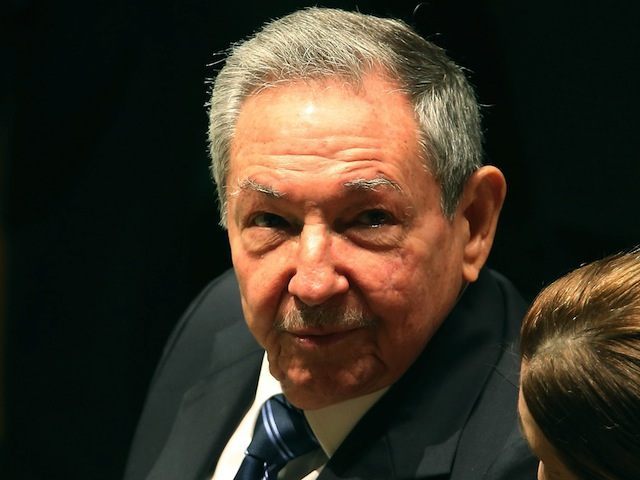The “Bolivarian Revolution” is facing the biggest challenge in its history, as Latin America’s impoverished people turn on their socialist leaders. With Dilma Rousseff out as Brazil’s president and a recall effort started on Venezuela’s Nicolás Maduro, Cuba stands to lose friendships it has taken decades to cultivate in the region.
In a column Friday, Reuters takes a look at the significant role Brazil has played in keeping Cuba’s finances stable, funneling as much as $1.75 billion into Cuba in the last 13 years of socialist rule – first under former president Luiz Inácio Lula da Silva and then under former President Dilma Rousseff.
Much of the money going into Cuba has been invested in major infrastructure projects like the revitalization of the Mariel harbor, as well as the refurbishing of tourist areas from which Cuban citizens are banned. Some participating corporations in funding these Cuban projects, the Miami-based Martí Noticias notes, have been implicated in the billion-dollar corruption scandal known in Brazil as “Operation Car Wash,” which has roped in Lula personally.
Brazil is one of the largest clients of Cuba’s doctor slave trade, in which Havana forces its doctors to work abroad for free in exchange for not being in Cuba. Cuba rakes in an estimated $8 billion a year from nations who pay the Cuban government for the doctors, while the Castro regime pockets the salaries. Brazil is the workplace of 11,400 Cuban doctor-slaves.
With Rousseff out of power for at least 180 days until the Senate’s impeachment trial concludes, the interim government of President Michel Temer has expressed a willingness to revisit the outrageous credit lines and favorable deals offered to the communist island nation. “There will be a short-term review of our Cuba policy, because the money has run out and because there are some serious governance questions regarding the loans. Everything will be put on hold,” an anonymous Brazilian diplomat told Reuters.
“Obviously there will be no more Cuban doctors coming here in the future, because this model of assistance is questionable and there won’t be support for it, but I doubt any Cuban doctors will be booted out,” he added. The first step, he suggested to Reuters, would be to pay the doctors directly for their labor, rather than pay the Cuban government for the presence of the doctors.
The Cuban government has responded to the impeachment of its key ally with an outraged letter to the new government of Brazil. Published at the state-run propaganda outlet Granma, the letter accuses “Imperialism” of having forced the ouster of Rousseff – typically a word used to refer to the United States – and described the legal impeachment process as a “parliamentary-judicial coup d’etat.”
The statement, signed by the “Revolutionary Government of Cuba,” reads, “What is going on in Brazil is part of a reactionary counteroffensive of the Imperalism and the oligarchy against revolutionary and progressive governments in Latin America and the Caribbean, which threatens the peace and stability of nations.”
The Cuban government, with its attempts to nurse nascent ties to American corporations and loud condemnations of popular revolts against socialism, appears aware of an ideological sea change in the region. That change first toppled the leftist government of Argentina, which, under Cristina Fernández de Kirchner, remained a loyal ally of Cuba, Iran, and Venezuela. “This land is an example of heroism, courage, and conviction. … I have much affection for the people of Cuba for their history and valuable struggle,” Kirchner said in Havana last September, shortly before her term ended.
In a sound rejection of Kirchner’s leftist policies, Argentina elected as her successor the then-mayor of Buenos Aires, Mauricio Macri, a pro-business conservative who expressed his “respect” for the Brazilian legal system following the impeachment vote, a move leftist outlets have labeled a sign of support for Rousseff’s ouster.
Unlike his predecessor, Macri has made clear he will not pursue warm relations with Cuba. “We want to seriously defend democratic values,” he said shortly after his ascent to head of state when asked about diplomatic ties with Cuba. He expressed optimism that Cuba “appears to be returning to this world where we respect basic norms of coexistence,” but said he would immediately cut ties if Cuba continued violating the human rights of its citizens.
Cuba’s closest ally in the region appears no safer from removal from power than Rousseff or Kirchner. In Venezuela, the anti-socialist opposition has begun a campaign to recall President Nicolás Maduro, collecting 200 percent signatures more than necessary for the first round of the process. While the Venezuelan government has begun attacking peaceful rallies to collect signatures and has yet to begin the verification process – a move that has triggered more protests – the pro-freedom elements of the Venezuelan government appear optimistic that they can bring the presidency to the ballots by 2017.

COMMENTS
Please let us know if you're having issues with commenting.